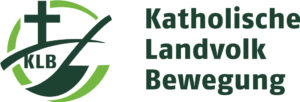Satellite-based protection of property, possessions and climate in East Africa
International Rural Development Aid (ILD)
Catholic Rural People’s Movement in Germany
(KLB)
Time: Tuesday, 25. January 2022, 1:00 p.m. – 2:00 p.m. (CET), subsequent deep dive 2:00 p.m. – 2:30 p.m.
Languages: English, German
Summary:
A particular challenge for land and soil in developing
countries is anthropogenic climate change as well as land
grabbing by speculators and investors from outside. These are
issues that threaten the very existence of the countries and
have a particularly strong local impact at village level.
Regional and national decision-making levels hardly address
these problems and issues.
In Uganda, solution-oriented action is being taken to counteract the problems at all three levels (climate change mitigation, property protection and solution-oriented action at the levels of responsibility) by addressing both climate-smart farming and rights infringements against smallholder families through paralegals (trained legal advisors), awareness-building with the help of high-profile digital mapping and obtaining ownership status. Women-headed households are particularly affected.
Given that individual region-specific partner organisations would
also be overwhelmed, ILD/KLB and their southern partners have
opted for a nationwide network structure. Partners can thus be
put in a position to promote joint interventions up to the
national level. The objective is to close the gaps that exist in
the implementation of national strategies and framework
agreements between village level and both regional and national
levels under the respective national regulatory framework
(national land law as well as Nationally Determined
Contribution, NDC). Systems of land use and ownership are mapped
and documented.
Based on a short study we could show which intruments are
necessary to empower the local communities, all this in
accordance and with respect to the cultural conditions.
Recording
Moderator
Panel Guests
He has worked for more than 40 years in Austrian and German Development Cooperation programs in Central and Western Africa, as well as an UNDP Associate Expert in Guinea Bissau, GIS-Mapping and Environment Management Expert in Mauritania, Sierra Leone, Romania and India for private Austrian and German companies or foundations.
From 1977 to 1979 he was in charge of regional planning courses in the Pan African Institute for Development in Douala, Cameroon.
From 1981 to 1986 he was project manager within the international association ENDA – Dakar for promotion of small-scale village technologies produced by local craftsmen.
From 1986 to 1990 he was co-founder and project manager in EWA (Entwicklungs-Werkstatt Austria) in Salzburg.
From 1990 to 1994 he was Coordinator for Austrian development projects in the Sahel Region based in Dakar, Senegal
Since 1995 to now, he worked as a free lance consultant for Western Africa, Southern India and Eastern Romania on water management and environment protection. From 20010 to 2011 he was in charge for event management and conferences on appropriate village water supply and climate change related conferences organized by MISEREOR all over Germany
He is retired since 2011 but engaged furthermore as short-term consultant for Senegal, Chad, Uganda and India for several German and Austrian organizations in environment protection and mapping training courses online or offline. This includes also carbon stock measurements by GPS investigations and satellite photos imagery treatment for awareness raising about forest and wetlands protection in Africa.
Since 2018 up to to date she is Deputy and Programs Officer of Caritas Kasanaensis
On management level, she is in charge of coordinating and supervising the institutional projects and programmes and ensures that all activities are following their time frames in accordance with the implementation plans. In addition, she is responsible for the reporting of the area supervisors to produce an institutional report. Likewise, she is responsible for organising and coordinating institutional events such as dialogues, annual general meetings and gatherings. On behalf of the Director of Caritas Kasanaensis, she represents the organisation to various national and international stakeholders.
On operational level she serves as a Project Manager for Global Climate Change Alliance Plus and Global Environment Facility projects coordinated by FAO. This EU and GEF funded initiatives in Uganda have the purpose of “Scaling up Agriculture Adaptation to Climate Change in Uganda while strengthening the inclusive, gender responsive and climate smart resilience of rural population’s agricultural production system in the cattle corridor” and “Integrating climate resilience into agricultural and pastoral production in Uganda, through a Farmer/Agro-pastoralist Field School Approach” respectively. She is also a member of two programme implementation consortia founded by the ILD, which coordinate countrywide interventions together with other non-profit organisations. On the one hand, they are steering village based climate change mitigation and adaptation initiatives, and on the other hand, they are establishing smallholder cooperatives to promote joint marketing and support peasant farmers in securing their land rights.
Before 2018 she worked in different positions within rural development like Assistant Programs Officer, Coordinator Nakaseke District and as Field Officer












